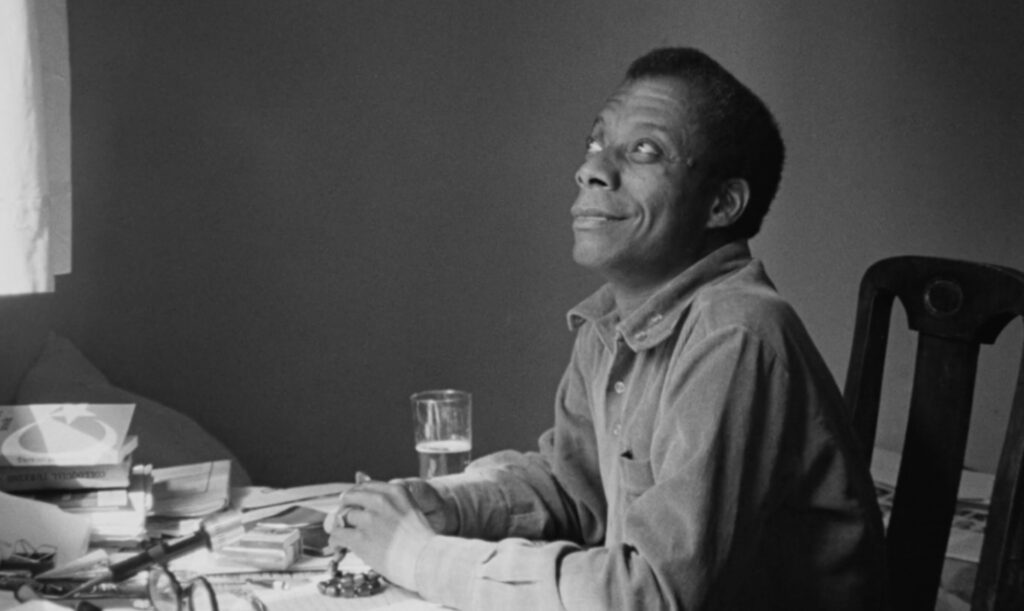James Baldwin series now screening at Film Forum
James Baldwin Abroad offers three beautifully restored films about the arguably world’s greatest public intellectual, now at Film Forum.
James Baldwin, whose fiction was a cultural touchstone for gay men seeking representation of their identities and experience, has become arguably more famous after his death due to his activism and essays which blazed a trail for discussing the problem of racism in America. Thirty-five years after his death Baldwin is perhaps more relevant and prophetic than he even was at the height of his powers. Born in 1924, in Harlem, Baldwin was driven to find refuge abroad, and in three short films — made in Istanbul, Paris, and London (with Dick Gregory) — we witness what he was like as a brilliant thinker and as a person. An opinionated and articulate intellectual in the mode of Gore Vidal and Susan Sontag, it is Baldwin’s views that have remained most influential in the years spanning Black Power and Black Lives Matter.
All three films included in this program have been recently restored and they include:
James Baldwin: From Another Place, Directed by Sedat Pakay (1973)
Set in Istanbul, the film opens with a surprisingly candid scene of Baldwin leisurely awakening in his bedroom. Sedat Pakay, a Turkish filmmaker who studied with Walker Evans, is known for his photographic portraits of famous artists and writers, Baldwin among them. Here in Istanbul, Baldwin seems relatively relaxed, walking among crowds in a public park or on the city’s streets. His focus is personal, even intimate: “The life I live is very different from what people imagine. I love a few men. I love a few women. Love comes in many strange packages; it never comes to you as you think it will. I think the trick is to say yes to life.” He speaks of how difficult it is concentrate and to write in the United States and says that “American men are paranoiac on the subject of homosexuality.” The film offers us a self-reflective James Baldwin, one who fearlessly examines his most private thoughts and feelings.
Meeting The Man: James Baldwin In Paris, Directed by Terence Dixon (1971)
Shot in Paris, a city in which Baldwin lived for nine years after leaving New York — a decision he has described “as a matter of life and death.” The early sequences find Baldwin uncooperative, even hostile to the British director and cameraman, clearly resenting their controlling role. He brings them to the Bastille, whose significance he explains: “They tore down this prison… I am trying to tear a prison down too. When a white man tears down a prison, he is trying to liberate himself. When I tear down a prison, I am simply another savage. What you don’t understand is that you for me are my prison guard, you are my warden. I am battling you, not you Terry, but you the English, you the French.”
“A stunning portrait of meta-textual tension…filled with ingenious, subtle references to the absurd approach the white filmmakers in the room have taken in trying to bottle his perspective for mass consumption…. An invaluable and pertinent insight into the man’s disarming, enrapturing worldview, and a testament to his resilience, unparalleled intellect, and unreserved pride in the face of all the world had to throw at him.”- Nathaniel Brimmer-Beller, Film Daze
Picture and audio restoration by Mark Rance, Watchmaker Films, London.
Baldwin’s N****r, Directed by Horace Ove (1968)
Called “the Godfather of Black British filmmaking,” documentarian Horace Ové films Baldwin at the top of his game, in good spirits, joining his friend, comedian/activist Dick Gregory, at the West Indian Student Centre in London. Baldwin speaks movingly of the historical antecedents of his life and that of other Black Americans: “My entry into America is a bill of sale. I became Baldwin’s n****r. I was formed in a certain crucible. My frame of reference is George Washington and John Wayne.” Speaking of slavery’s reality he avers: “I discover those songs darkies sang were not just the innocent expressions of primitive people, but extremely subtle, difficult, dangerous, and tragic expression of what it felt like to be in chains.”
With support from The Richard Brick, Geri Ashur, and Sara Bershtel Fund for Social Justice Documentaries, the Roy Lichtenstein Foundation Fund, and the Ada Katz Fund for Literature in Film.






